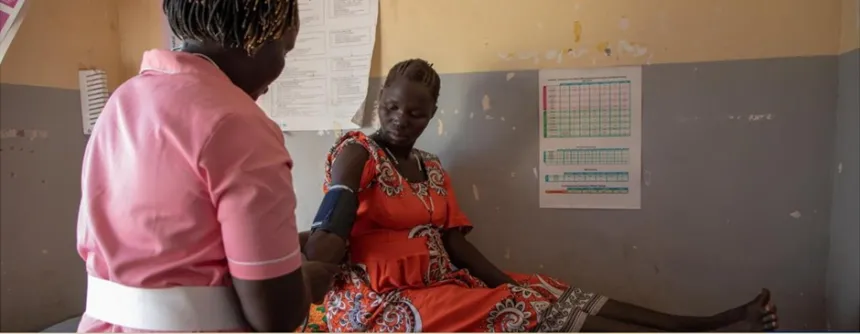The World Health Organization (WHO) has unveiled its first global guideline aimed at improving pregnancy outcomes for women living with Sickle Cell Disease (SCD), a move designed to address the serious and often life-threatening risks posed by the condition during pregnancy.
SCD is a group of inherited blood disorders characterized by abnormally shaped red blood cells that can block blood flow, leading to severe anemia, pain episodes, infections, and critical complications such as strokes and organ failure. These risks intensify during pregnancy, as the body requires more oxygen and nutrients, making pregnant women with SCD 4 to 11 times more likely to die compared to their healthy counterparts.
Dr. Pascale Allotey, WHO’s Director for Sexual and Reproductive Health and Research, emphasized that women with SCD can have safe and healthy pregnancies if they have access to quality healthcare. “This new guideline aims to improve pregnancy outcomes for those affected,” she said, urging greater investment in treatment access, early diagnosis, and awareness.
The guideline offers over 20 evidence-based recommendations, tailored especially for low- and middle-income countries where most SCD cases and maternal deaths occur. Key recommendations include folic acid and iron supplementation (especially adjusted for malaria-endemic regions), management of pain and sickle cell crises, infection and clot prevention, and close monitoring of both mother and baby.
Importantly, the guideline advocates for respectful, individualized care that takes into account each woman’s medical history, preferences, and needs, while also calling for the elimination of stigma and discrimination in healthcare settings.
With over 7.7 million people affected globally—a figure that has grown by 40% since 2000—SCD remains a neglected condition, particularly in sub-Saharan Africa, where 80% of cases are found. WHO stresses the need for knowledgeable care teams, including hematologists, midwives, and obstetricians, to manage these high-risk pregnancies.
This new publication is part of WHO’s broader initiative to address noncommunicable diseases in pregnancy. Upcoming guidelines will tackle conditions such as cardiovascular disease, diabetes, and mental health, recognizing their growing impact on maternal and newborn health worldwide.

